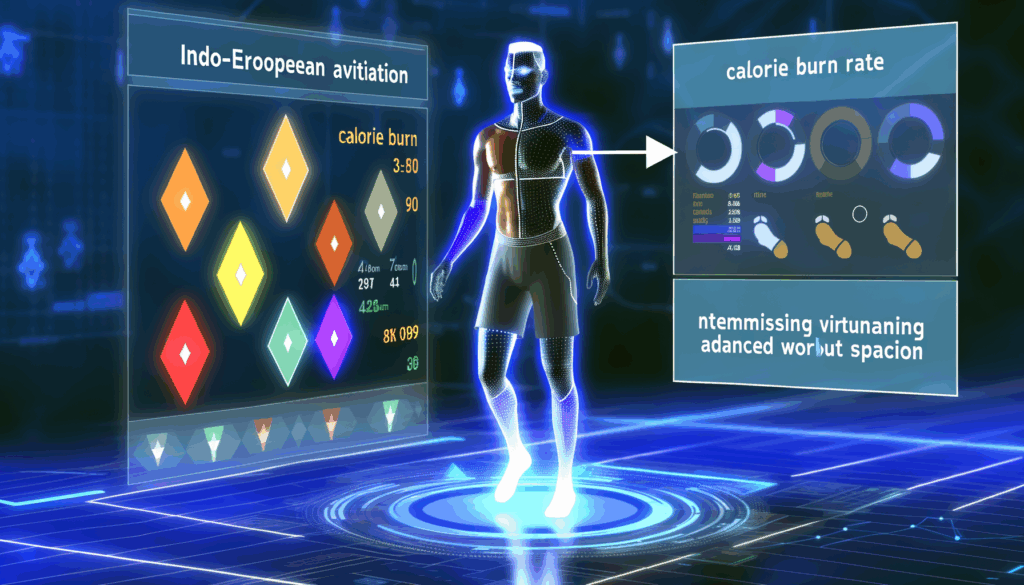Human augmentation, involving enhanced physical capabilities through bionic implants and related technologies, has become a fascinating area of interest for those seeking to improve their bodies and lives. When integrating these advanced tools into one’s physiology, understanding the intricacies of nutrient intake is crucial. This includes managing calorie balance, which plays a pivotal role in optimizing cyborg upgrades and ensuring the enhanced performance of bionic implants.
Understanding Bionic Metabolism and Nutrition
Bionic metabolism refers to how the body processes energy and nutrients when enhanced with artificial components. For those with bionic implants, nutrition is not just about ensuring the body runs optimally but also about supporting the functioning of these enhancements. This means focusing on cyborg nutrition, which encompasses the dietary requirements necessary to maintain both human and artificial components effectively.
One of the key aspects of cyborg nutrition is balancing calorie intake. This balance is crucial because it directly affects how efficiently bionic implants operate, their overall lifespan, and their integration with the human body. For example, a diet that is too restrictive might not provide enough energy to power advanced prosthetic limbs or cognitive enhancements, while excessive calorie consumption can lead to inefficiencies in energy usage.
Calorie Balance and Its Impact
Achieving the right calorie balance involves understanding both the energy requirements of the human body and the additional demands placed by bionic implants. This includes considering the metabolic rate, activity level, and the specific energy needs of the implants themselves. For instance, high-performance implants might require more calories to maintain optimal function compared to those used for basic mobility.
Tools like the Calorie Calculator Cloud can help individuals with bionic implants manage their calorie intake more effectively. These platforms provide personalized nutritional advice, ensuring that users are neither under nor over fueling their systems.
Nutrient Intake for Cyborgs
In addition to managing overall calorie intake, focusing on the types of nutrients consumed is also vital for those with bionic enhancements. This involves ensuring a balance of macronutrients like proteins, carbohydrates, and fats, as well as essential vitamins and minerals. For example, Cyborg Sport offers meal replacement formulas designed to provide a balanced mix of nutrients, which can be particularly useful for individuals with bionic implants who need consistent and reliable nutrition.
Case Study: Using Meal Replacement Powders
Products like Cyborg Sport’s Real Meal MRP represent a convenient way to maintain nutritional balance. This meal replacement formula includes a mix of fast and slow-digesting proteins, whole oats, and low GI beet sugar, providing sustained energy while supporting muscle growth and recovery. Additionally, it includes MCT oil to help manage energy levels and a full vitamin and mineral complex to ensure comprehensive nutritional support.
For individuals looking to optimize their cyborg upgrades, incorporating such products into their diet can be beneficial. For instance, if someone with a bionic limb is also engaging in intensive physical training, a meal replacement like Real Meal MRP can help ensure they are getting the necessary nutrients and calories to support their body and implants.
Strategies for Effective Calorie Management
Effective calorie management for individuals with bionic implants involves a combination of monitoring total calorie intake, balancing macronutrient ratios, and ensuring that the diet supports both human and artificial components.
Tips for Cyborg Nutritionists
- Monitor Energy Needs: Use tools like the Calorie Calculator Cloud to assess and adjust calorie intake based on both human and bionic requirements.
- Balance Macronutrients: Ensure a balanced diet that includes adequate proteins for muscle repair, carbohydrates for energy, and fats for sustained release.
- Consider Additional Supplements: Sometimes, specific supplements (like vitamin D or iron) may be necessary to support the unique demands of bionic implants.
- Regular Health Checks: Regular health checks can help adjust dietary strategies based on how well the body and implants are responding over time.
Real-World Examples
In real-world scenarios, individuals with advanced bionic limbs or cognitive enhancements might need to adjust their diets significantly based on their activity levels and the power requirements of their implants. For example, someone with an advanced prosthetic leg might need to consume more calories during periods of high activity to support both muscle function and the energy needs of the prosthetic.
Additionally, products from brands like NOW Foods or Optimum Nutrition can provide essential supplements that support muscle recovery and energy production, which can be particularly beneficial for those with enhanced physical capabilities.
Conclusion and Future Directions
In conclusion, managing calorie balance is a critical aspect of optimizing cyborg upgrades. By understanding the nutritional demands of both human and bionic components, individuals can ensure that their dietary choices support their enhanced capabilities. Whether it’s using meal replacement powders like Cyborg Sport’s Real Meal MRP or leveraging advanced calorie management tools like the Calorie Calculator Plans, there are numerous strategies available to optimize nutrition and enhance overall performance.
To explore further how Calorie Calculator Cloud can help in personalizing nutritional advice for individuals with bionic implants, consider checking out their comprehensive resources and tools designed to optimize nutrition for peak performance.
As the field of human augmentation continues to evolve, so too will our understanding of the nutritional requirements for optimal performance. By staying informed and adapting dietary strategies accordingly, those embracing cyborg enhancements can ensure that their upgrades truly enhance their lives.
Other brands and resources that offer valuable insights into both bionic metabolism and nutritional management include MuscleTech, MyVitamins, and BSc Hydroxyburn, each providing unique perspectives on how to optimize nutritional intake for enhanced physical performance.
For individuals seeking a personalized approach to managing their calorie intake and nutritional balance, exploring the range of options available from these brands can be particularly insightful. Additionally, reading up on the latest advancements in prosthetic limb technology or brain-machine interfaces can help appreciate the evolving landscape of human augmentation and its nutritional implications.








